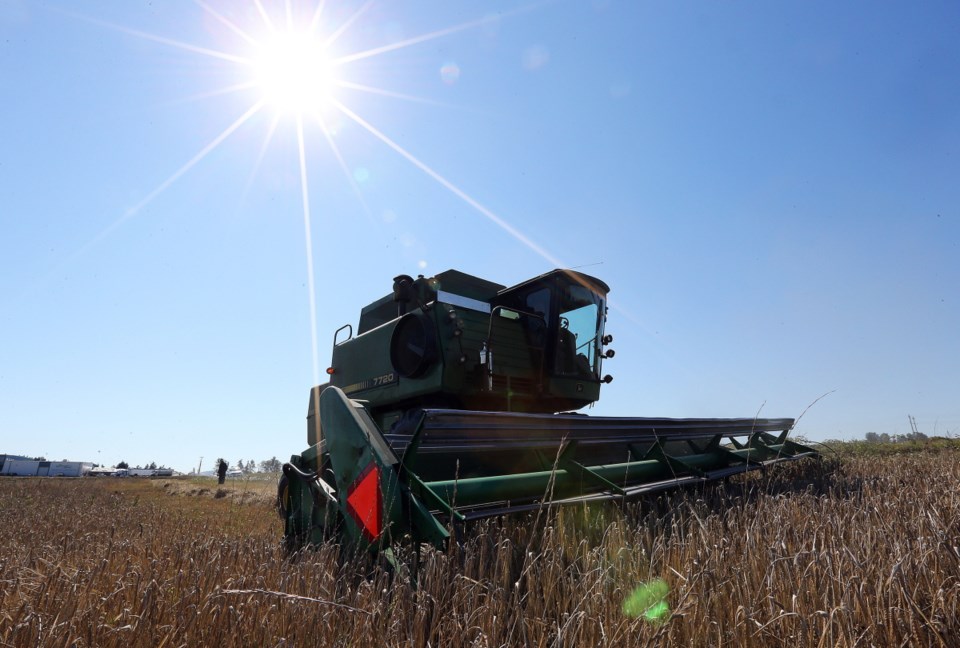 Godwin’s Law covers all online discussion, but it can extend to the B.C. legislature as well.
Godwin’s Law covers all online discussion, but it can extend to the B.C. legislature as well.
The dictum was invented by author Mike Godwin in 1990, during the infancy of the internet. It held that: “As an online discussion grows longer, the probability of a comparison involving Nazis or Hitler approaches 1.”
In slightly plainer language, it means the longer an argument runs, the greater the likelihood someone will compare their opponent to the Nazis.
B.C. Liberal MLA Rich Coleman fulfilled the dictum last week, while heatedly discussing amendments to the Agricultural Land Reserve, of all things.
It isn’t the first time it has happened to a B.C. politician, and it likely won’t be the last.
To his credit, he apologized Monday.
“I drew an analogy that offended some people. I unreservedly apologize for that. It was not the intent of any kind. … I withdraw any remarks.”
The reference he made was veiled, but unmistakable.
It revolved around the pitched rhetorical battle that has been underway for a few weeks about a change that strips property owners’ rights to apply to the land commission to exclude their land from the reserve.
It subsided for a while due to the legislature agenda, but sprang back to life last Thursday, which happened to be Holocaust Memorial Day.
Coleman said at the outset: “I find it difficult to talk to this bill, because I have been here for 23 years and have never seen a more bigoted piece of legislation.”
He should have succumbed to the difficulty right then and sat down. But he pressed on.
“Particularly on a day like today when we witnessed people whose rights were taken apart and away from them in the 1940s.”
He apologized a few hours later online. Notable in the fallout was the reaction of B.C. Liberal Leader Andrew Wilkinson, who slapped him down in short order, even after Coleman’s apology. He posted on social media: “Drawing parallels between discriminatory legislation and the Holocaust is absolutely inappropriate and on behalf of the B.C. Liberal caucus we reject any comparisons.”
It was the right thing to do and an attempt to put out a bonfire before it spread. It was also probably the strongest public rebuff that Coleman, once a powerful figure in the Liberal cabinet, has ever had from a leader.
Coleman isn’t the only Opposition critic who has become a little unhinged over the legislative change.
“It’s an ill-conceived, misguided, malignant, offensive piece of legislation that attacks, demonizes and dehumanizes tens of thousands of farmers in B.C,” pronounced Liberal critic Mike de Jong.
His historical reference of choice was the Komagata Maru incident, in which 400 Punjabi people were denied entry to Canada in 1914.
“Camouflaged discrimination” was the link, in de Jong’s mind.
That was a month ago, which suggests the opposition is building up a full head of steam.
It’s apparently being driven by a big wave of resentment. Coleman and de Jong both come from agricultural ridings and have stories of farmers who are seriously upset by the implications.
The specific objection is to a change dealing with attempts to exclude land from the ALR. Property owners used to require local government approval to make such applications.
That has changed so that local governments must make the applications on their behalf. The impact is disguised by a sneaky semantic manoeuvre that changes the definition of “person.”
A person can still apply, but the definition of person applies only to municipalities and other government bodies.
It’s so arcane that it took a while to sink in. But the shorthand conclusion that farmers aren’t persons any more is fully realized now, and it isn’t going over well.
The bill was introduced March 7 and sat dormant for a month until a day of debate. It didn’t make it back on the agenda for another few weeks. That was partly due to spring break, but it’s an open question whether the government is pondering some changes.
The bill will come up for clause-by-clause debate in the next two weeks. It should be quite a show, even without any further unfortunate historical references.



